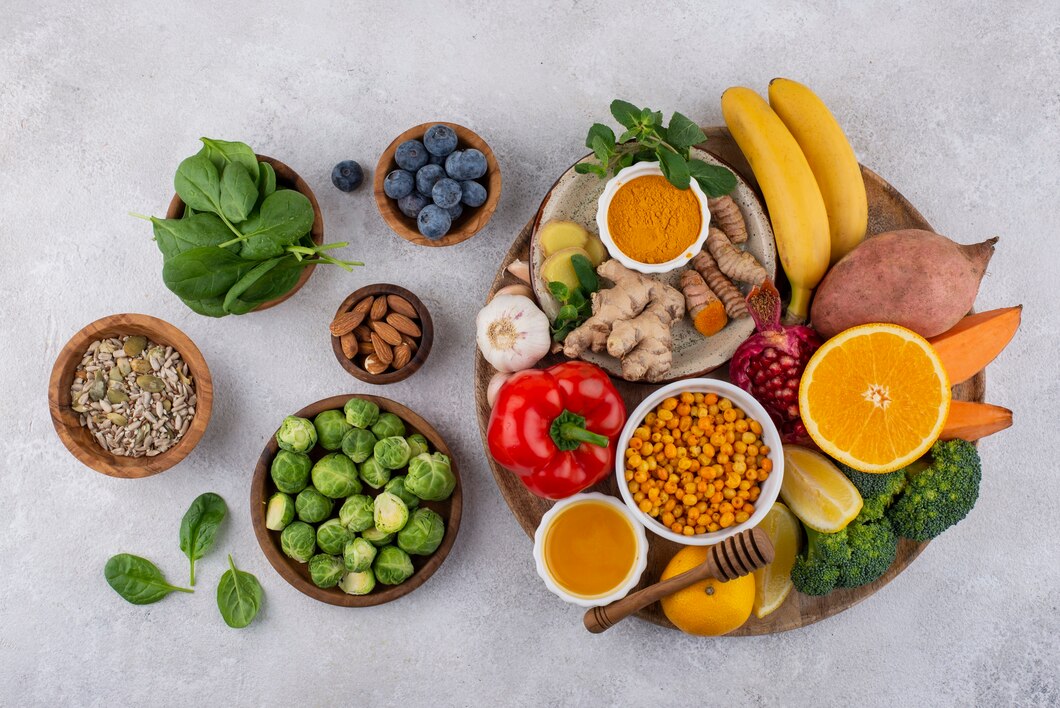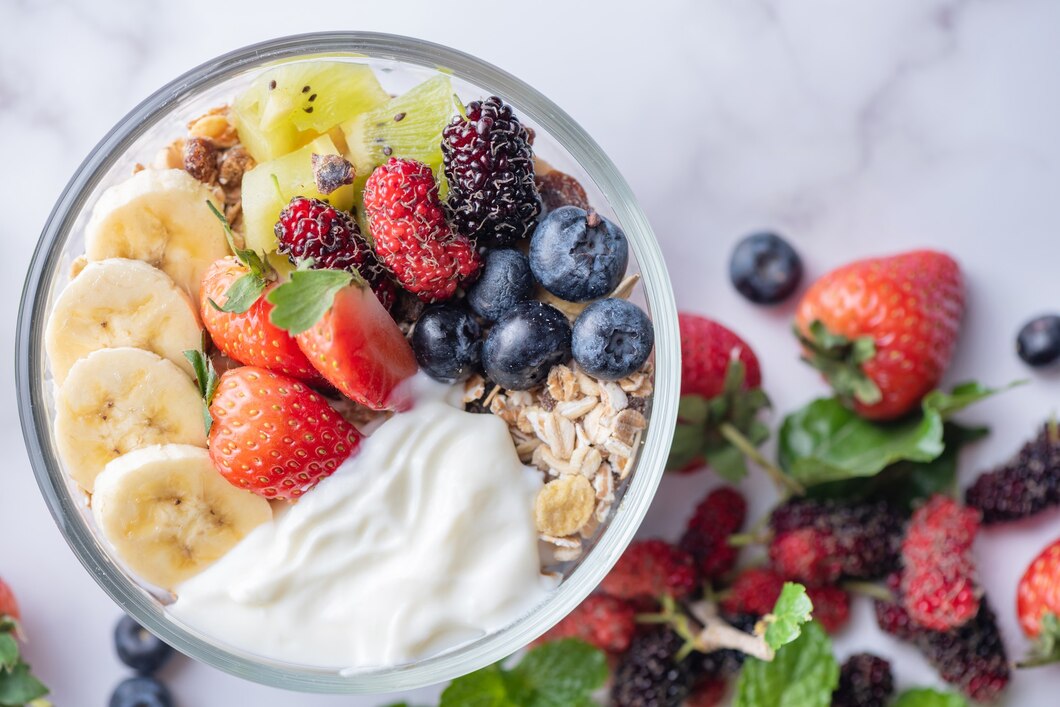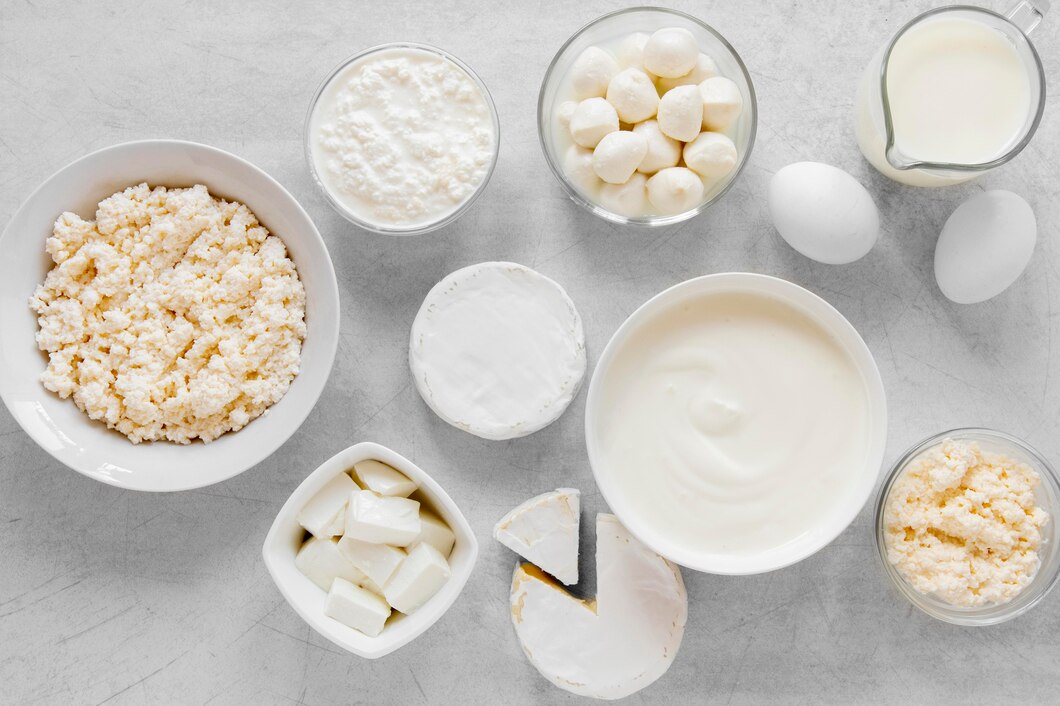Top 10 Foods for a Healthy Gut Microbiome
Gut microbiome and gut health are paramount for overall health. It influences digestion, immunity and mental well-being. The first and most important ingredient of gut health is microbiome nutrition. Adding the best foods for gut health to your meals can promote digestion as well as reduce inflammation and provide beneficial bacteria. Gut health relies on eating fibre, probiotics, and prebiotics.

Gut microbiome and gut health are paramount for overall health. It influences digestion, immunity and mental well-being. The first and most important ingredient of gut health is microbiome nutrition. Adding the best foods for gut health to your meals can promote digestion as well as reduce inflammation and provide beneficial bacteria.
Gut health relies on eating fibre, probiotics, and prebiotics. Probiotic foods introduce beneficial bacteria, and prebiotic foods feed these microbes. This article lists the top 10 foods that help create a diverse and strong gut microbiome, promoting optimal health.
Why Gut Health Matters
The Role of the Gut Microbiome
Your gut hosts trillions of bacteria that affect many bodily functions, including:
- Digestion and Nutrient Absorption – A balanced microbiome helps break down food and absorb nutrients.
- Immune System Support – About 70% of the immune system is in the gut, so a healthy microbiome is crucial for fighting off pathogens.
- Mental Health and Mood Regulation – The gut produces neurotransmitters like serotonin that influence mood and cognitive function.
- Inflammation Control – A balanced microbiome helps reduce chronic inflammation, linked to various health issues.
- Weight Management – A well-functioning microbiome aids metabolism and helps prevent obesity.
- Hormonal Balance – The gut plays a role in producing and regulating hormones that affect stress, sleep, and appetite.

Top 10 Best Foods for Gut Health
1. Yoghurt
Yoghurt is a popular probiotic diet choice, packed with live cultures for digestive balance.
Benefits:
- Contains good bacteria like Lactobacillus and Bifidobacterium.
- Aids lactose digestion for those with mild intolerance.
- Supports immune function and gut barrier health.
- May ease symptoms of irritable bowel syndrome (IBS) and bloating.
Tip: Choose natural, unsweetened yoghurt with “live and active cultures” for the best results.
2. Kefir
Kefir is a fermented milk drink that offers even more probiotics than yoghurt.
Benefits:
- Rich in various probiotic strains.
- Helps digestion and reduces bloating.
- Contains compounds that promote gut lining health.
- May boost bone health due to its calcium content.
Tip: Drink kefir on an empty stomach to enhance probiotic absorption.
3. Sauerkraut
Sauerkraut is fermented cabbage, rich in probiotics and fibre.
Benefits:
- Introduces good bacteria for digestive health.
- High in vitamins C and K, which support immunity and bone health.
- Helps reduce gut inflammation and promotes regular bowel movements.
Tip: Choose unpasteurized sauerkraut, as pasteurization can kill probiotics.
4. Kimchi
Kimchi is a Korean dish made from fermented vegetables, often with garlic and spices.
Benefits:
- Provides gut-friendly bacteria that improve digestion.
- Contains anti-inflammatory compounds that help balance the microbiome.
- Aids in weight management and metabolic health.
- Supports immune function by reducing oxidative stress.
Tip: Add kimchi to salads or rice bowls, or enjoy it as a side dish.
5. Miso
Miso is a Japanese paste made from fermented soybeans, offering umami flavour and gut health benefits.
Benefits:
- Contains probiotics that help maintain gut flora.
- Rich in minerals like zinc and manganese.
- May lower inflammation and support immune function.
- Aids digestion and gut motility.
Tip: Mix miso into soups or dressings, but avoid boiling it, as heat can kill beneficial bacteria.
6. Tempeh
Tempeh is another fermented soy product that provides probiotics and protein.
Benefits:
- Supports good gut bacteria while offering plant-based protein.
- High in prebiotic fibre that feeds beneficial microbes.
- May lower inflammation and oxidative stress.
- Promotes heart health by reducing cholesterol levels.
Tip: Use tempeh as a meat substitute in stir-fries or sandwiches.
7. Garlic
Garlic is a strong microbiome nutrition booster, serving as a prebiotic for good bacteria.
Benefits:
- Contains inulin, a prebiotic that supports gut flora.
- Antimicrobial properties help maintain a healthy bacterial balance.
- Supports immune health and reduces inflammation.
- May lower blood pressure and improve heart health.
Tip: Eat raw or lightly cooked for maximum benefits.
8. Onions
Onions are rich in prebiotics that support a healthy gut microbiome.
Benefits:
- High in fibre to aid digestion.
- Helps maintain gut bacteria diversity.
- Contains antioxidants that lower inflammation.
- Supports liver function by enhancing detoxification.
Tip: Add raw onions to salads or sauté them lightly to keep prebiotic benefits.
9. Bananas
Bananas are an easy-to-digest fruit that provides prebiotic fibre for good bacteria.
Benefits:
- Contains resistant starch, promoting healthy digestion.
- Helps maintain bowel regularity and prevent constipation.
- Supports beneficial gut bacteria like Bifidobacteria.
- Offers a natural energy boost without spiking blood sugar.
Tip: Eat slightly green bananas for more resistant starch.
10. Whole Grains
Foods that are helpful in probiotic diets include whole grains like oats, barley and quinoa, which give fibre that help populate good bacteria.
Benefits:
- Increases gut microbiome diversity.
- Great for digestion and constipation.
- Helps reduce inflammation and improves metabolic function.
- Aids in blood sugar regulation and insulin sensitivity.
Tip: Whole, unprocessed grains tend to have the greatest benefits for gut health.

How to Maintain a Gut-Friendly Diet
1. Balance Probiotic and Prebiotic Foods
For a thriving gut microbiome, mix probiotic-rich foods with prebiotic sources. Probiotics introduce good bacteria, while prebiotics fuel them.
2. Reduce Processed and Sugary Foods
Processed foods and excess sugar can disrupt gut balance, leading to inflammation and digestive issues. Limit intake of:
- Artificial sweeteners
- Processed meats
- Refined carbohydrates
3. Stay Hydrated
Water is key for digestion and helps probiotics work well. Drinking enough fluids supports gut motility and overall microbiome health.
4. Experiment with Fermented Foods
If new to fermented foods, start with small portions to let your gut adjust. Gradually adding a variety of best foods for gut health will help create a balanced microbiome.
5. Consider a High-Quality Probiotic Supplement
If it’s hard to get enough probiotics from food, supplements can help. Choose strains that match your health goals, like those for digestion, immunity, or mental clarity.
Conclusion
Maintaining a balanced gut microbiome is critical for digestion, immunity and general health. You can encourage healthy digestion and a burgeoning microbiome by incorporating the best foods for gut health into your diet, such as probiotic-rich yoghurt, kefir, and fermented veggies.
A well-rounded probiotic diet combined with prebiotic-packed foods provides nourishment for good bacteria and encourages gut health for life. Add this gut-friendly food to your regular diet now, and you will be rewarded with a healthier digestive system and better health.